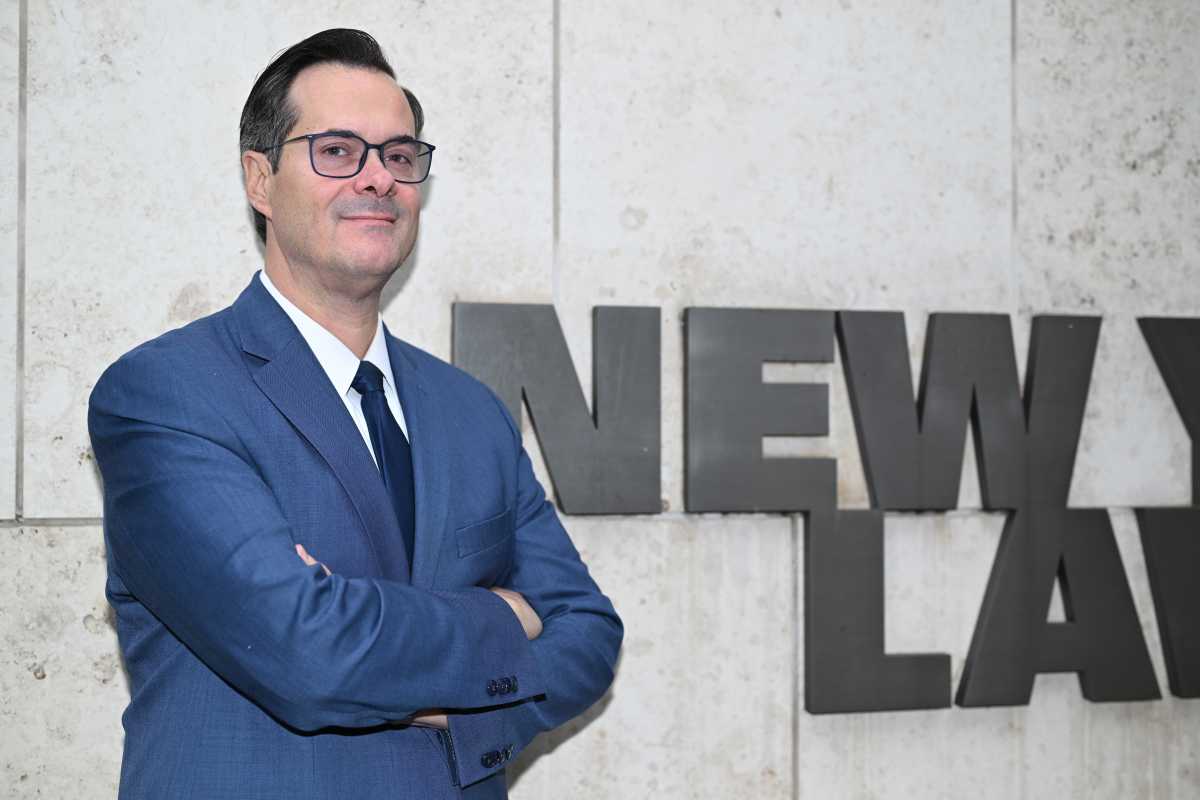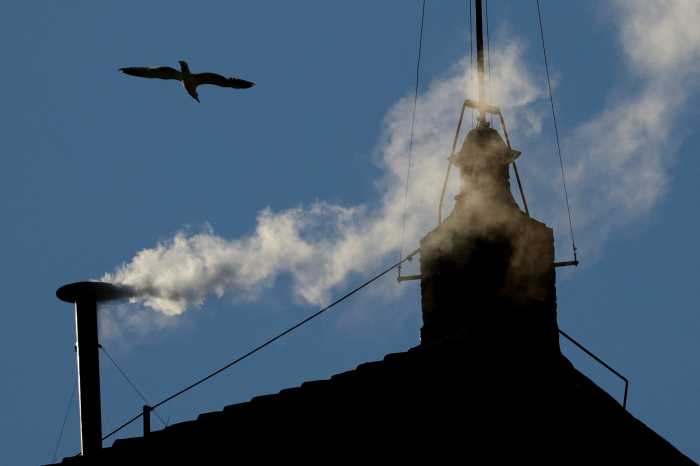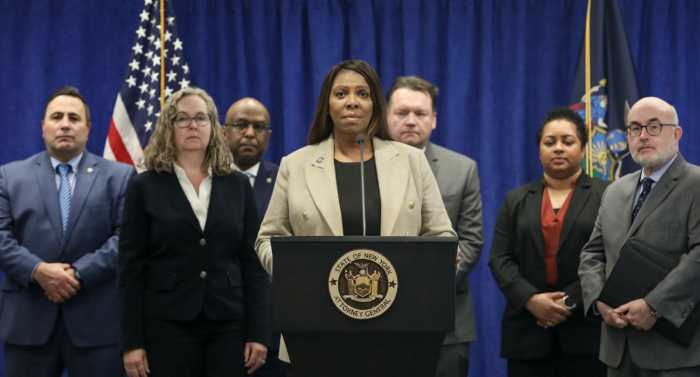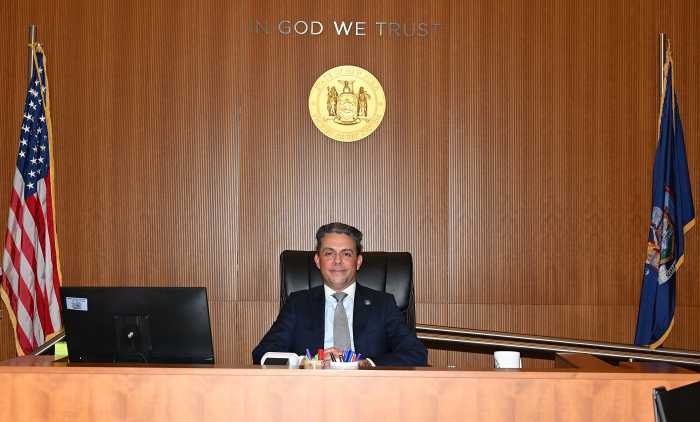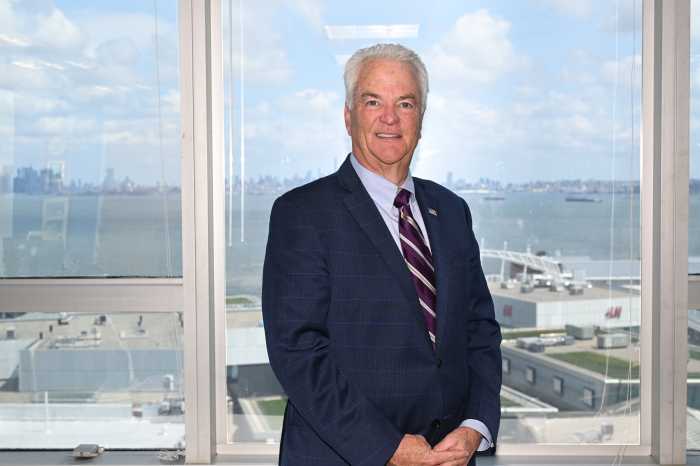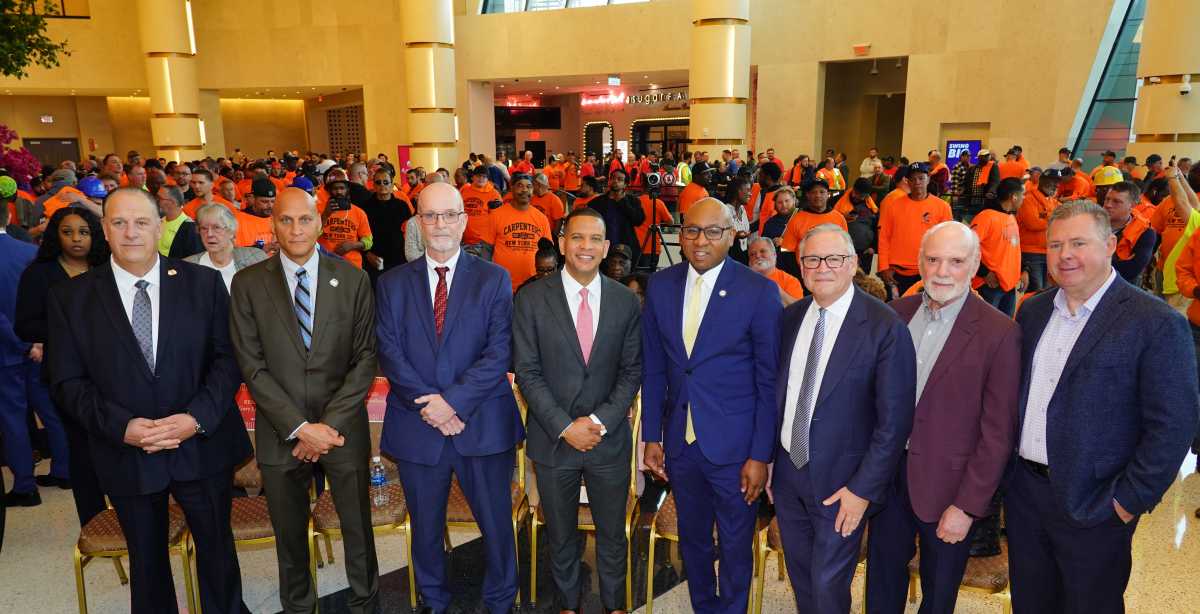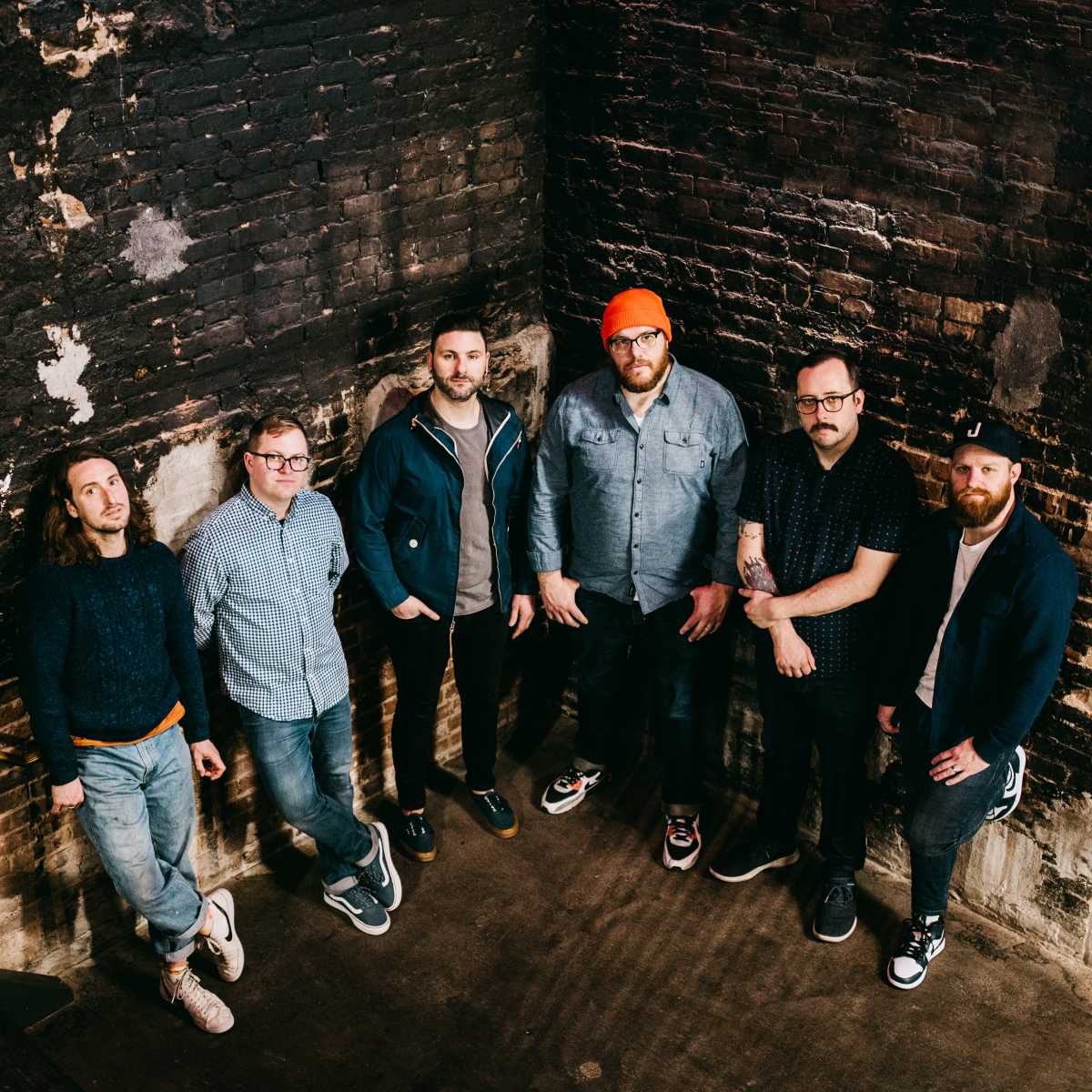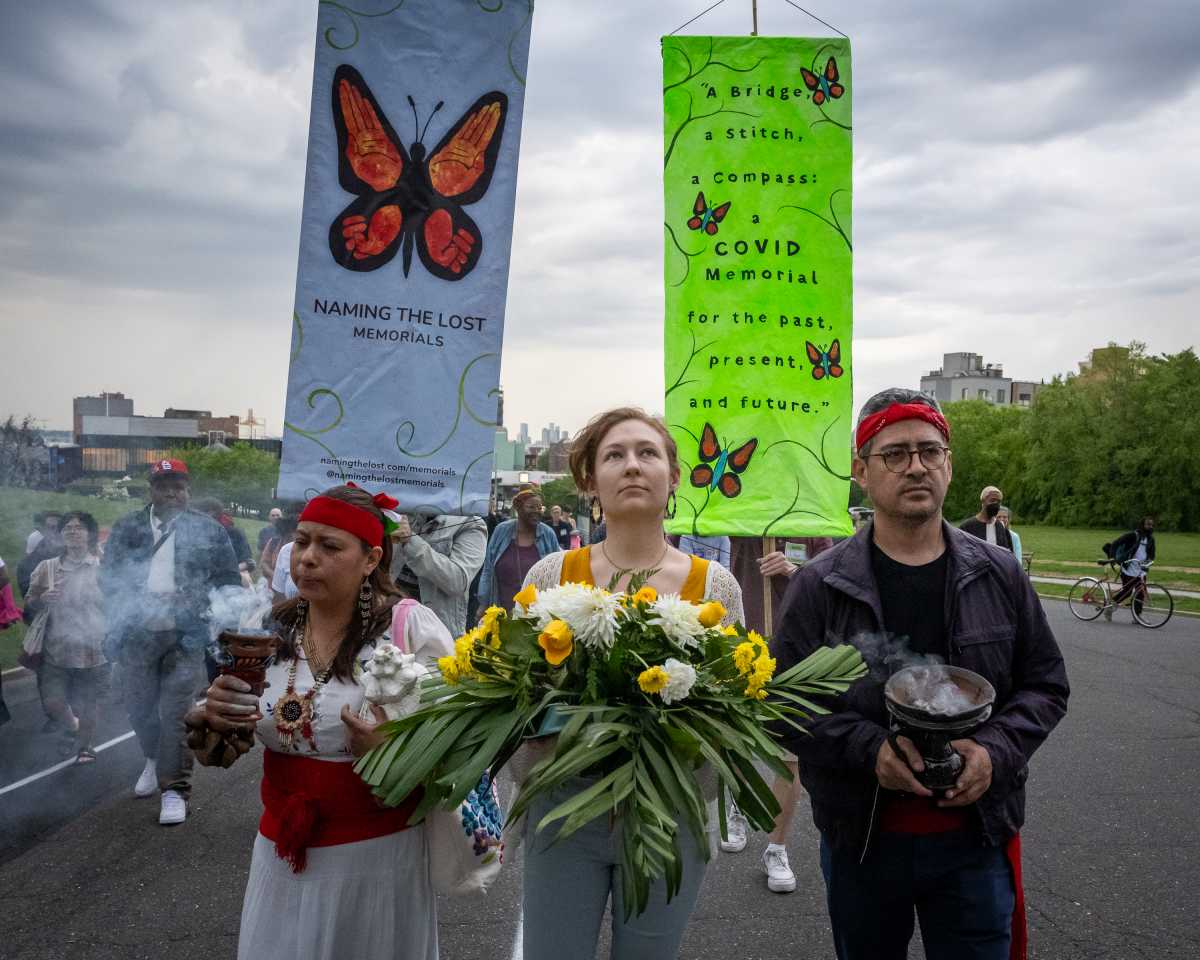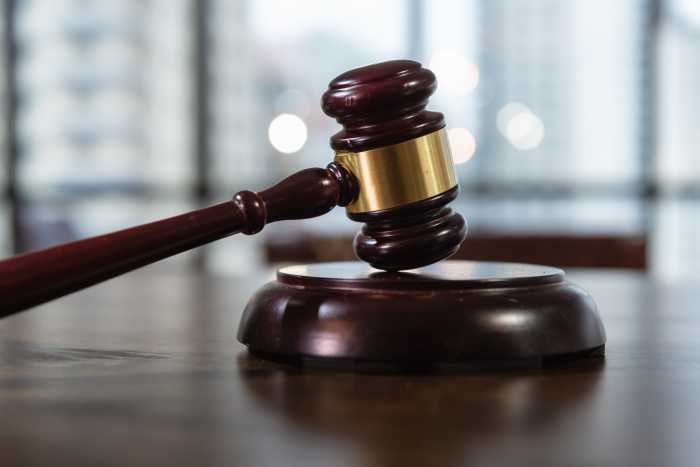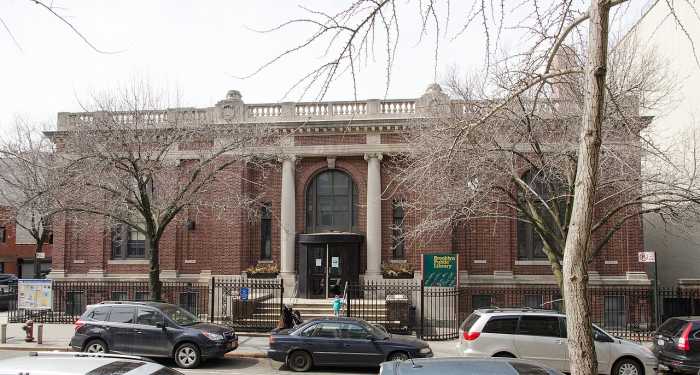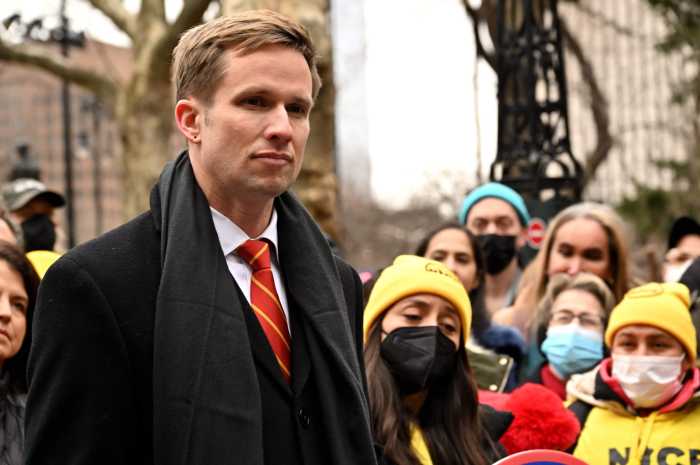When Anthony Crowell became the youngest law school dean in the country after taking the helm of New York Law School in 2012, he found himself guiding the institution through the tailwinds of a recession.
In order to chart a course, Crowell, 54, relied on his experience as a longtime New York City public servant acting as counsel to Mayor Michael Bloomberg, honing the institution’s connection to the city’s economy and culture in order to provide its students a strong offering of career options.
He also proudly came up with the school’s new motto: “New York’s law school.”
“While we are reflective as a community of what New York is, we’re also reflective in terms of being a program that connects so beautifully to the major sectors of the city,” Crowell said.
Though national economic and regulatory waters are again choppy, law schools’ popularity is actually surging. But there’s no time for a law school dean to play defense. Crowell said that he’s alway planning at least three to four years ahead — and his vision for the school continues to tie directly to the heart of the Big Apple.
Almost 14 years later, Crowell is now one of the longest-serving law school deans in the country. But he said that he continues to stick largely to the pedagogical rubric that he created early in his tenure that centers on three major areas central to New York City’s economy: business and financial services; intellectual property, media, technology and applied science; and government and public interest.
“I thought throwing down that stake really mattered. It mattered at that time and it mattered because of the history of this institution,” he said.
The third oldest law school in New York City, New York Law School has a unique perch in legal education as a private law school that is unaffiliated with a bigger parent university. Its graduates range from a gaggle of New York City mayors to the former CEO of tech giant, Oracle. Its “institutional memory” is an important part of the law school’s culture, Crowell said.
“We are now approaching our 135th year. Our first graduating class graduated from Carnegie Hall the same year Ellis Island opened,” he said.
As law school applications have skyrocketed nationally, New York Law School has stood out as a beneficiary of this wave of legal interest. Whereas applications are up 20.5% nationally compared with last year, according to the Wall Street Journal, New York Law School is up 31%, according to Crowell. While he said that law schools tend to see a bump after most presidential election cycles, the school’s focus on policy seems especially suited to meet the moment.
“There’s also government and policy and rule of law questions. Those are dominant right now in our everyday discussion. And I think that inspires students to think about ‘What can I do in my profession to have an impact?’ I think that this generation is very socially conscious,” Crowell said.
Crowell got his start in law working in policy. A first generation college student whose father was a New Jersey state trooper and whose mother was a federal secretary, Crowell got his law degree from American University while working at night at the International City and County Management Association as well as the State and Local Legal Center.
“That experience doing law policy and legislative work and going to law school at the same time was just extraordinary in terms of what I was learning and what I was able to do in terms of applying the law in a practical context on a daily basis,” he said.
When he came into city government, those experiences gave him a leg up to begin working in legal education early. Crowell was in his late 20s when he started teaching state and local government law at Brooklyn Law School. He went on to teach at New York Law School before becoming dean.
Crowell became dean directly after working under Bloomberg, where he gained experience serving as a senior executive in New York City government for more than a decade, first as a policy advisor before working directly as a counselor to Bloomberg.
Crowell based a lot of his philosophy as an administrator to Bloomberg who mentored him on organizational management and business techniques. Seeing the inner function of local government also grounded Crowell’s sense of civic purpose.
“Being a lawyer in those roles and the type of roles that I had in city government really gave me a range of abilities and understanding of how the law functioned to serve society,” he said.
He sees the responsibility of a dean as having an “an enormous role in serving the broader profession and community. So I take it very seriously that while our principal role is to educate students, the beauty… is you are preparing the next generation of lawyers to go out to serve communities.”
New York Law School has boosted its reputation as a destination for public service. It had the second highest number per capita of students going into government jobs from the class of 2022, just ahead of Georgetown and directly after George Washington, Crowell said. After they graduate, students are heading to district attorney’s offices, to government agencies at the local and federal level and to state court clerkships, among other opportunities.
But the upswing of law school applicants aren’t all seeking public interest law. One recent trend in legal education is to follow the rise of artificial intelligence and help guide the tech industry through the legal questions around the emerging technology. The tech sector offers a big range of career options for aspiring lawyers, and the key is to help students navigate the job market. In 2022, New York Law School had a 95% overall placement after 10 months of graduation.
“I think students really see that ‘If I’m going to invest in a graduate degree, what’s going to give me the most market flexibility and where can I deploy skills that I’m learning?’” Crowell said.
The campus’s physical location has also bolstered its connection to finance.
“Wall Street is a 10 minute walk. We literally sit in the shadow of Citibank’s world headquarters,” Crowell said.
Crowell sees the school as a microcosm of the work environment students will experience after graduating where each one is a “junior partner.” He said he doesn’t believe in strict hierarchies, instead letting students take a role in shaping its culture.
“Someone asked me how do you envision yourself? If you were a body part, what would you be? Are you the head? Are you the brain?” Crowell said. “And I said, ‘Well, I think I’m a little bit of all those things, but I think the most important thing for a dean to be is the connective tissue.”
Even as applications to New York Law School rose this year, Crowell is keeping incoming classes the same size, with a goal of maintaining good job outcomes three or four years down the road, and the future continues to be volatile for institutions of higher education under the Trump administration.
Unlike big university systems which are bracing for potential cuts to research funding, the big federal policy question for a standalone institution like New York Law School is how it could be affected by changes to federal financial aid. This status also comes with its own challenges. In 2020, Crowell helped form the National Association of Standalone Graduate Schools after the law school was left out of Covid relief funding, which was distributed based on undergraduate financial aid grants, a criteria that doesn’t apply to independent grad schools.
The other big question that Crowell will have to contend with is the role that law school deans play in addressing the ongoing campaign against elite law firms President Trump charges have “weaponized” the justice system against him in what experts are calling a threat to the legal profession’s independence. On April 9, Yale Law School’s dean spoke out in a letter compelling the school’s community to protect the rule of law.
Similarly Crowell didn’t directly criticize the Trump administration’s actions on the topics, but did assert the responsibility to defend “the rule of law, and access to representation in legal matters.”
He added, “What you have right now are federal actions that raise questions as to whether things might be consistent with the rule of law and what might be lawful.”
Law schools do have a broader duty to educate the public on the legal issues of how our government functions and individual liberties, Crowell said. To this end, the law school will be addressing some of these questions at a constitutionality and citizenship summit, it’s hosting in September in collaboration with the U.S. Court of Appeals for the Second Circuit.
“Promotion of the rule of law is not something that is new,” Crowell said. “It is something that is a daily promise that law deans should be making to their communities and the public and the profession.”
Editor’s note: A previous version of this story misstated the year that Crowell began as dean and the year from which the school’s job placement data was derived.



